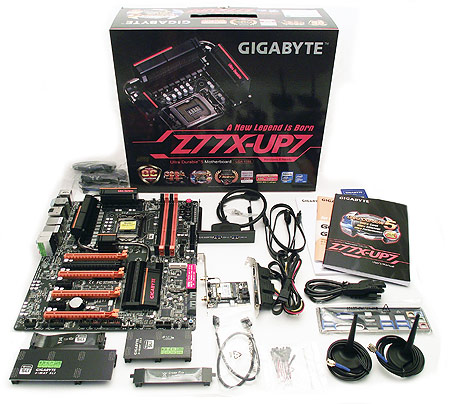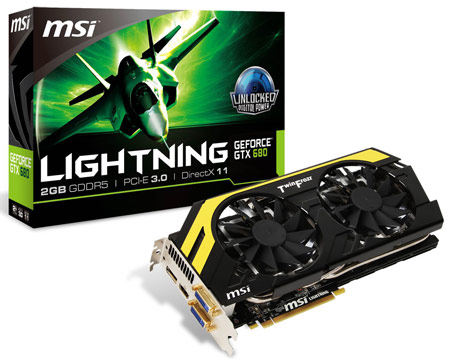Gaming Shoot-Out: 18 CPUs And APUs Under $200, Benchmarked
Now that Piledriver-based CPUs and APUs are widely available (and the FX-8350 is selling for less than $200), it's a great time to compare value-oriented chips in our favorite titles. We're also breaking out a test that conveys the latency between frames.
Test System And Benchmarks
Testing LGA 1155-, Socket AM3-, Socket FM1-, and Socket FM2-based CPUs requires four different platforms. We're using the same memory, hard drive, and graphics card on all four to eliminate as many variables as possible.
We're using Gigabyte's Z77X-UP7 for our LGA 1155-based platform. This is the company's flagship offering for that processor interface. The similar (but lower-priced) Z77X-UP5 earned our Recommended Buy award in Six $220-280 Z77 Express-Based Motherboards, Reviewed, so the -UP7 appears to be a great choice for our testing.
For the Socket AM3+-based system, we're using Gigabyte's 990FXA-UD5 motherboard. This product achieved the highest CPU overclock in our Five $160 To $240 990FX-Based Socket AM3+ Motherboards comparison, and distinguishes itself with true four-way SLI support.
Our Socket FM1-based platform is Asus' F1A75-V Pro, a board that demonstrated excellent overclocking potential in Professional Help: Getting The Best Overclock From AMD's A8-3870K.
Finally, the Socket FM2-based platform is represented by Asrock's FM2A85X Extreme6. This motherboard garnered our Tom's Hardware 2012 Approved award in Six Socket FM2 Motherboards For AMD's Trinity APUs thanks to a combination of high performance and low price.
As for the graphics card, we chose one of the fastest single-GPU boards available, MSI's GeForce GTX 680 Lightning. Our goal is to isolate CPU performance, so we made this choice with the intention of de-emphasizing GPU bottlenecks.
We're testing the 18 most notable CPUs under $200, including some previous-gen products (the Core i5-2500K costs more than $200, but it's included for comparison purposes) to gauge the improvements that have been made. The Athlon II X4s didn't make it because they employ the same micro-architecture and cache configuration as the Llano-based APUs, so they'd be redundant. AMD's A8-3870K processor accurately represents the performance of a 3.0 GHz Athlon II X4.
Get Tom's Hardware's best news and in-depth reviews, straight to your inbox.
The Corsair Vengeance memory kit we used is rated at 1000 MHz with 10-10-10-27 2T timings using a built-in XMP profile, and we set it to that speed whenever possible. Due to limitations on certain platforms, we dropped the modules to 933 MHz on the Pentium G860, and 800 MHz at 9-9-9-24 2T timings on the Athlon II X3 450.
| Interface | Socket FM1 | Socket FM2 | Socket AM3+ | LGA 1155 |
|---|---|---|---|---|
| CPU/APU | AMD A4-3400 (Llano) 2.7 GHzAMD A8-3870K (Llano) 3.0 GHz | AMD A4-5300 (Trinity) 3.4 GHz Base, 3.6 GHz Turbo CoreAMD A10-5800K (Trinity) 3.8 GHz Base, 4.2 GHz Turbo Core | AMD Athlon II X3 450 (Rana) 3.2 GHzAMD Phenom II X4 980 (Deneb) 3.7 GHzAMD Phenom II X6 1100T (Thuban) 3.3 GHz Base, 3.7 GHz Turbo CoreAMD FX-4170 (Zambezi) 4.2 GHz Base, 4.3 GHz Turbo CoreAMD FX-6200 (Zambezi) 3.8 GHz Base, 4.1 GHz Turbo CoreAMD FX-8120 (Zambezi) 3.1 GHz Base, 4.0 GHz Turbo CoreAMD FX-4300 (Vishera) 3.8 GHz Base, 4.0 GHz Turbo CoreAMD FX-6300 (Vishera) 3.5 GHz Base, 4.1 GHz Turbo CoreAMD FX-8350 (Vishera) 4.0 GHz Base, 4.2 GHz Turbo Core | Intel Pentium G860 (Sandy Bridge) 3.0 GHzIntel Core i3-2120 (Sandy Bridge) 3.3 GHzIntel Core i3-3220 (Ivy Bridge) 3.3 GHzIntel Core i5-2500K (Sandy Bridge) 3.3 GHz Base, 3.7 GHz Turbo BoostIntel Core i5-3550 (Ivy Bridge) 3.3 GHz Base, 3.7 GHz Turbo Boost |
| Motherboard | Asus F1A75-V ProSocket FM1, Chipset: AMD A75 | ASRock FM2A85XSocket FM2, Chipset: AMD A85 | Gigabyte 990FXA-UD5Socket AM3+, Chipset: AMD 990 | Gigabyte Z77X-UP7LGA 1155, Chipset: Intel Z77 Express |
| Networking | On-board Gigabit LAN controller | |||
| Memory | Corsair Vengeance2 x 2 GB, 2000 MT/s, CL 10-10-10-24-2T, except Pentium G860 at 1866 MT/s, CL 13-13-13-34-2T and AMD Athlon II X3 at 1600 MT/s, CL 9-9-9-24-2T | |||
| Graphics | MSI GTX 680 Lightning1110 MHz GPU (1176 MHz Max Boost), 2 GB GDDR5 at 1502 MHz (6008 MHz effective)(Set to -105 MHz core to approximate 1006 MHz reference clock) | |||
| Hard Drive | Western Digital Caviar Black 1 TB 7,200 RPM, 32 MB Cache, SATA 3Gb/s | |||
| Power | ePower EP-1200E10-T2 1200 W ATX12V, EPS12V | |||
| Software and Drivers | ||||
| Operating System | Microsoft Windows 8 x64 | |||
| DirectX | DirectX 11 | |||
| Graphics Drivers | Nvidia 310.70 WHQL |
| Benchmark Configuration | |
|---|---|
| 3D Games | |
| Metro 2033 | Version 1.0.0.1, Built-In Benchmark |
| Far Cry 3 | Version 0.1.0.1, Tom's Hardware Guide Custom Benchmark, Fraps runs |
| The Elder Scrolls V: Skyrim | Version 1.3.22.0, Tom's Hardware Guide Custom Benchmark, Fraps runs |
| DiRT Showdown | Version 1.2.0.0, Built-In Benchmark |
| StarCraft II | Version: 1.5.4, Tom's Hardware Guide Custom Benchmark, Fraps runs |
Current page: Test System And Benchmarks
Prev Page Introducing A New Test: Frame Time Variance Next Page Results: Metro 2033Don Woligroski was a former senior hardware editor for Tom's Hardware. He has covered a wide range of PC hardware topics, including CPUs, GPUs, system building, and emerging technologies.
-
esrever Wow. Frame latencies are completely different than the results on the tech report. Weird.Reply -
ingtar33 so... the amd chips test as good as the intel chips (sometimes better) in your latency test, yet your conclusion is yet again based on average FPS?Reply
what is the point of running the latency tests if you're not going to use it in your conclusion? -
shikamaru31789 I was hanging around on the site hoping this would finally get posted today. Looks like I got lucky. I'm definitely happy that newer titles are using more threads, which finally puts AMD back in the running in the budget range at least. Even APU's look like a better buy now, I can't wait to see some Richland and Kaveri APU tests. If one of them has a built in 7750 you could have a nice budget system, especially if you paired it with a discrete GPU for Crossfire.Reply -
hero1 ingtar33so... the amd chips test as good as the intel chips (sometimes better) in your latency test, yet your conclusion is yet again based on average FPS?what is the point of running the latency tests if you're not going to use it in your conclusion?Reply
Nice observation. I was wondering the same thing. It's time you provide conclusion based upon what you intended to test and not otherwise. You could state the FPS part after the fact. -
Anik8 I like this review.Its been a while now and at last we get to see some nicely rounded up benchmarks from Tom's.I wish the GPU or Game-specific benchmarks will be conducted in a similar fashion instead of stressing too much on bandwidth,AA or using settings that favor a particular company only.Reply -
cleeve ingtar33so... the amd chips test as good as the intel chips (sometimes better) in your latency test, yet your conclusion is yet again based on average FPS?what is the point of running the latency tests if you're not going to use it in your conclusion?Reply
We absolutely did take latency into account in our conclusion.
I think the problem is that you totally misunderstand the point of measuring latency, and the impact of the results. Please read page 2, and the commentary next to the charts.
To summarize, latency is only relevant if it's significant enough to notice. If it's not significant (and really, it wasn't in any of the tests we took except maybe in some dual-core examples), then, obviously, the frame rate is the relevant measurement.
*IF* the latency *WAS* horrible, say, with a high-FPS CPU, then in that case latency would be taken into account in the recommendations. But the latencies were very small, and so they don't really factor in much. Any CPUs that could handle at least four threads did great, the latencies are so imperceptible that they don't matter.
-
cleeve esreverWow. Frame latencies are completely different than the results on the tech report. Weird.Reply
Not really. We just report them a little differently in an attempt to distill the result. Read page 2. -
cleeve Anik8.I wish the GPU or Game-specific benchmarks will be conducted in a similar fashion instead of stressing too much on bandwidth,AA or using settings that favor a particular company only.Reply
I'm not sure what you're referring to. When we test games, we use a number of different settings and resolutions.
-
znakist Well it is good to see AMD return to the game. I am an intel fan but with the recent update on the FX line up i have more options. Good work AMDReply

